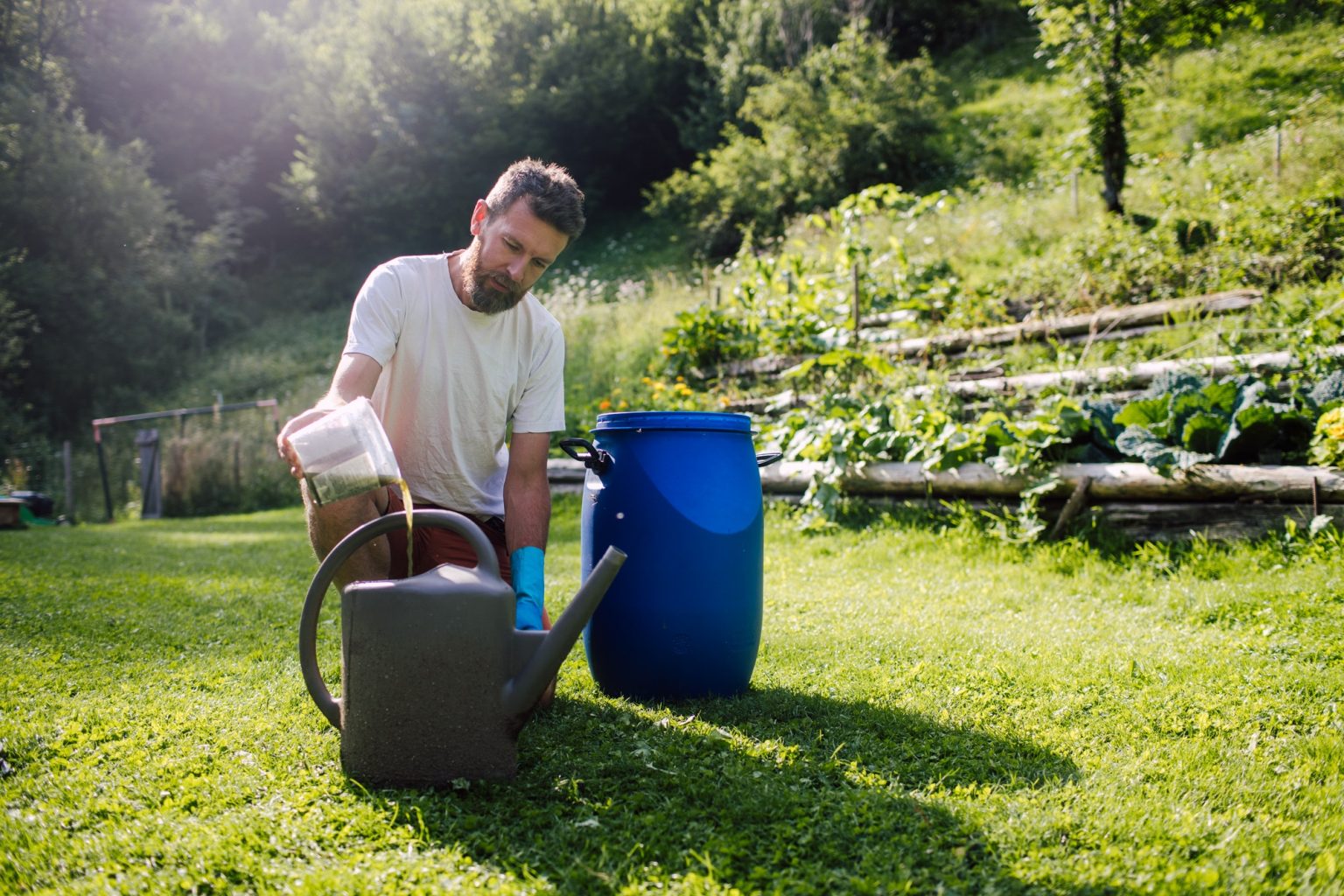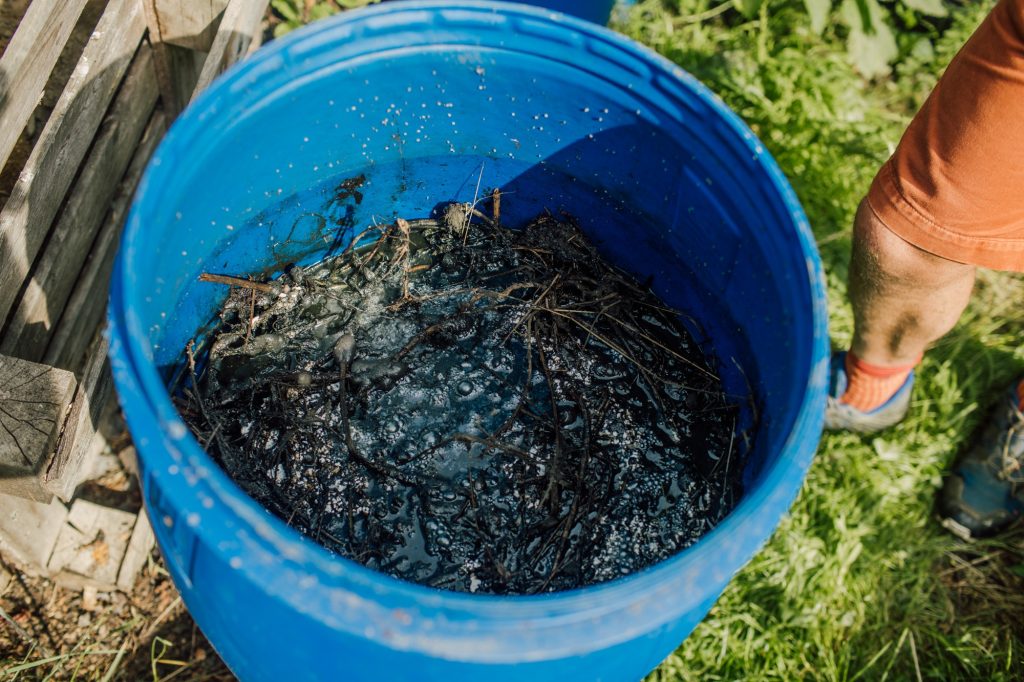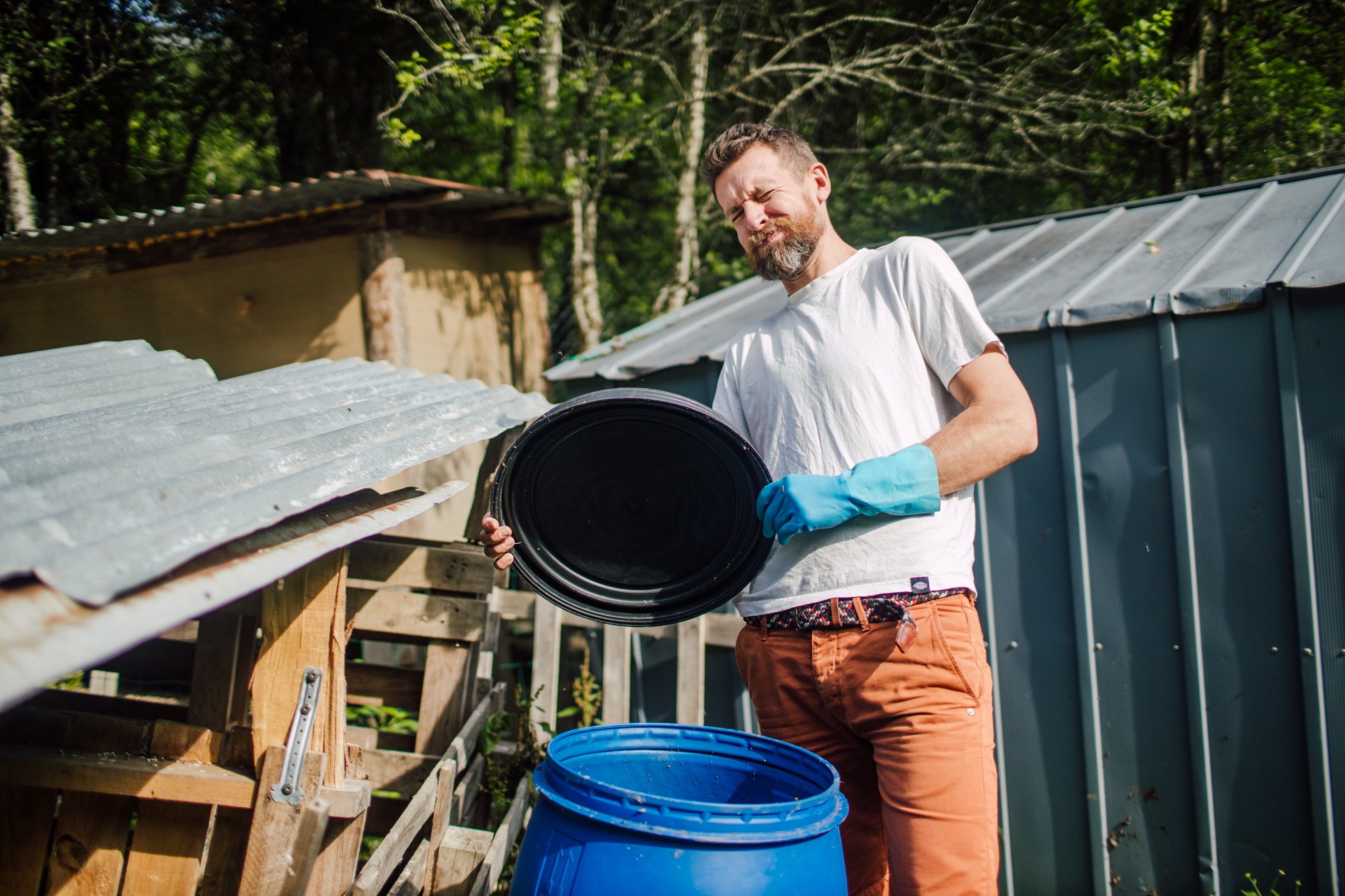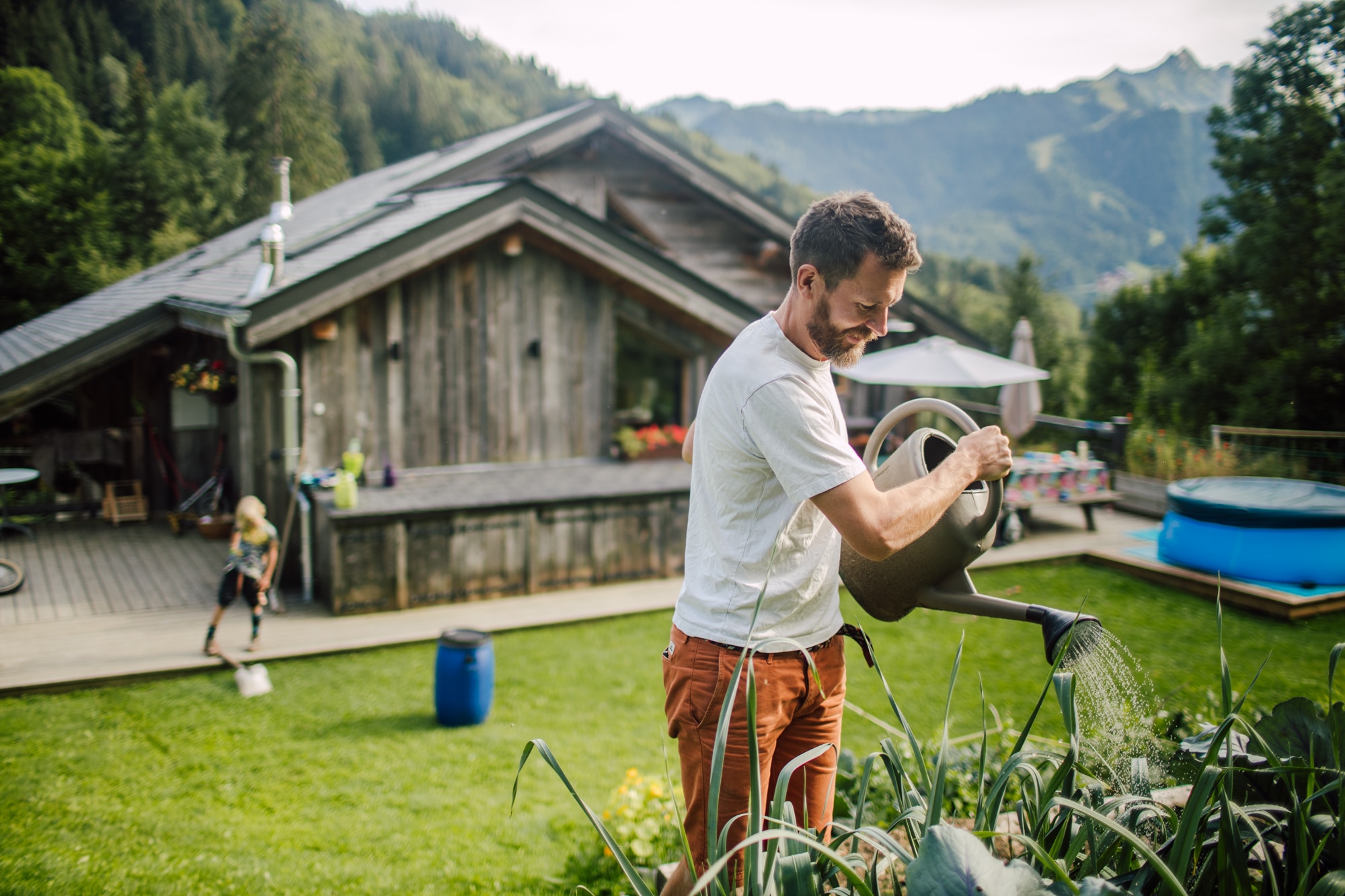
Making Organic Plant Feed Out of Nettles
What is it?
Weeds are often considered a nuisance, but when prepared properly, stinging nettles have many benefits from a food source to a medicinal treatment to a garden fertilizer. Today we are sharing how to put the nutrients in nettles to good use by creating an organic liquid plant feed.

Why is it good for my garden?
It turns out, many of the nutrients in nettles that are good for the human body are also beneficial to plants. Minerals, flavonoids, essential amino acids, proteins, and vitamins – nettles are full of immune boosting goodness. To be precise the stingers include: Chlorophyll Nitrogen, Iron Potassium, Copper, Zinc, Magnesium and Calcium, as well as vitamins A, B1, B5, C, D, E, and K.
Who’d of thought the humble stinger was such a powerhouse! It makes sense to find a way to harness all this goodness and feed it back into the garden.
How do I make it?
- Fill a large bucket or bin with nettle leaves and stems, bruising the foliage first. Weigh down the nettles with a brick or paving stone, or something similar.
- Fill three-quarters of the bucket with water to allow room for the foam that will be created during the brewing process.
- Leave for 3 – 4 weeks to brew, stirring every couple of days.Tip: It can be a bit smelly so keep it somewhere away from the house.
- Once brewed, dilute the nettle concentrate 1:10 parts water.
- Use a watering can to feed the fertilizer to your plants.
- Top off the nettle liquid throughout the year by adding more leaves and water. At the end of the growing season, simply add the nettle dregs to the compost bin, then start again in Spring.

How does it help the Planet?
Making the switch to organic fertilizer is super important for your health and the environment. Using synthetic fertilizers may seem like the easiest choice to give your garden a boost, but in reality it’s just a quick fix that will cause a lot of long term damage to your garden and the environment.
Synthetic fertilizers provide nutrients for the plants but include no organic matter or nutrients that are required by the microorganisms in the soil to remain healthy. In fact, synthetic fertilizers are known for killing microorganisms when as soon as they are applied (what!).
But synthetic fertilizers are not only damaging to the biodiversity of our soil, they are also extremely toxic when they enter our waterways and drinking water, and that’s impossible to avoid you use them in your garden.
So, instead of using harsh chemicals on your beautiful garden and food source, why not make the switch to organic fertilizers, like this nettle plant feed, you’ll save money too.
We are also convinced our home grown organic veg and fruit tastes better too, and if you’re coming to one of our chalets soon, you can try it for yourself! On the menu we will have carrots, potatoes, nuts and preserved fruits, all grown in our permaculture garden.

AliKats Mountain Holidays is a sustainable chalet company in the mountain resort of Morzine in the French Alps. Our range of luxury chalets provide a wonderful base for skiing in winter, rejuvenating mountain retreats and active summer holidays. Join us on our sustainability journey as we step up our efforts to counter the climate emergency. You’ll find us at home, in the garden, in our chalets and just about everywhere behind the scenes as we get our hands dirty and get practical about saving the planet. As we hone our skills on sustainable living, we will be sharing what we learn on our Instagram, Facebook feed and here on our blog.
Working towards carbon neutrality: How our guests’ carbon contribution is making a difference
If you’ve booked an AliKats holiday over the last year, you may remember a carbon neutrality transport contribution being added to the cost of your holiday. Here we explain why we introduced that contribution, what it amounted to and what it means for the planet. Minimising our carbon footprint is…
Continue reading...How to make wood chip mulch at home
In our permaculture garden, we are adopting natural, eco-friendly techniques to help our plants thrive. Vegetables and shrubs need well-hydrated, nutrient-rich soil, but bare soil can get damaged by a number of factors, such as persistent weeds, direct sunlight and drying winds. Organic mulch made from wood chips is a…
Continue reading...The Chicken Cycle: The benefits of gardening with chooks
Last year we introduced chickens to our garden and they’ve quickly become a fundamental part of our permaculture gardening system. They’re also comical creatures to have around, and the three youngest AliKats (Ivy, Wilf and Albie aged 8, 6 and 4) have loved being involved in taking care of them.
Continue reading...AliKats takes gold in global sustainability award
Yesterday (12th July) saw AliKats Mountain Holidays announced as winners in the virtual awards ceremony for the 2023 Global Good Awards. The awards recognise organisations and leaders who are achieving practical, real-world impact for people and planet that is both scalable and replicable – and who have inspiring stories to tell. We are delighted…
Continue reading...

